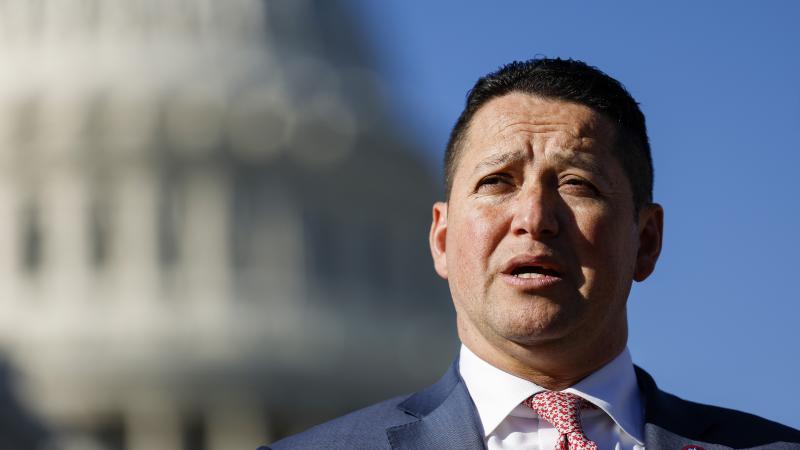Media pillar admits 'potential vulnerabilities,' 'security challenges' in electronic pollbooks
But Associated Press frets about possible exploitation of issues by purveyors of "election conspiracies" and continues to advocate use of the devices.
The Associated Press, a bulwark of the establishment media push to marginalize questioning of the headlong transformation of U.S. election processes, is now acknowledging technological problems and security issues with electronic pollbooks, even while fretting about possible exploitation of such vulnerabilities by purveyors of "election conspiracies" and continuing to advocate use of the machines.
"High-profile problems involving electronic pollbooks have opened the door for those peddling election conspiracies," the Associated Press reported Saturday in a story headlined "Electronic pollbook security raises concerns going into 2024."
Electronic pollbooks contain voter databases and are used to check in voters for voting in person at elections and ensure that they have not previously voted.
The AP acknowledged that electronic pollbooks have "potential vulnerabilities" and "come with unique security challenges." At the same time, the wire service cited "experts" warning that the devices "could be prime targets again for those seeking to disrupt the voting process and sow chaos around U.S. elections."
During the November election in Detroit, multiple polling locations had data errors that caused electronic pollbooks to show that voters had already cast absentee ballots when they hadn't. This led to voters being checked in by a paper backup list and issued either ballots or provisional ballots.
Noting "a brief issue" with the e-pollbooks in Detroit last November, the AP reported the problem was quickly resolved.
Detroit wasn't the only jurisdiction to experience problems with electronic pollbooks last year.
In Virginia, the city of Richmond and the counties of Suffolk, Chesterfield, and Nottoway also experienced issues with the devices on Nov. 8, often leading to longer wait times for voting. The counties used backup paper pollbooks.
During the Ohio primary election last year, multiple counties experienced issues with their e-pollbooks. Those counties also fell back on paper pollbooks.
The AP noted that one remedy proposed to limit future issues with electronic pollbooks is to set national "uniform testing standards," similar to the voluntary guidelines the U.S. Election Assistance Commission has for voting and ballot tabulation machines.
Phill Kline, director of election integrity watchdog The Amistad Project, told Just the News on Monday that the issue with electronic pollbooks is their numerous vulnerabilities.
While the AP story focuses on foreign adversaries accessing voter data, Kline said the "problem is not hacking from without, but within."
During the 2020 election, Democratic campaigns and/or progressive organizations had access to electronic pollbooks in Michigan, Pennsylvania, and Wisconsin, according to Kline, and they "didn't keep track of who had access and what changes were made," and the "access was not audited."
Those who have access to electronic pollbooks should be politically accountable and act transparently, he said.
Regarding technical difficulties with the devices, Kline said, "There's always a problem."
"The challenge is that local officials don't understand how to fix it," and they have to get the vendor of the e-pollbooks to solve the problems, he continued.
Access to the devices is being given to outside groups to create and delete voters, Kline warned. Instead, "it ought to be the county clerk," who's "easy to audit, subject to FOIA, and can be voted out." Outside organizations with access to electronic pollbooks haven't been audited to determine if the information they enter is valid, he added.
Technology used in elections should make the process more transparent, but currently it's all too often "making it more opaque," Kline lamented.
While election laws require transparency, the way election officials "are artfully finding gaps" to make elections less transparent is "circumstantial evidence of wrongful intent," meaning they are "intending to game system," he said.
Even as election officials make the system less transparent, they "refuse to acknowledge issues" and "threaten people who want to look at it," he added.
National testing standards would be "even less transparent," Kline fears. Consolidating authority "creates less transparency" not more, he explained.
J. Christian Adams, president of the election integrity law firm Public Interest Legal Foundation, is far more bullish on electronic pollbooks. Calling them "election integrity devices that prevent people from voting twice," he told Just the News they are "incredibly important to use."
The devices are "critical," Adams said, citing the example of Philadelphia, which still uses paper pollbooks and has had problems with people voting in person who have already cast absentee ballots. "Electronic pollbooks fix that," he said.
The example of Florida, where voter ID is connected with electronic pollbooks, illustrates that the technology complements rather than compromises election security measures, Adams argues.
"Electronic pollbooks and voter ID are like peanut butter and jelly — they go together," he said. "When you have voter ID law and electronic pollbooks, you have the best possible system for elections."
Adams brushed aside concerns about the technological vulnerability of the devices, calling e-pollbook failure a "black swan event."
National testing standards for the equipment can "only help," he said, while specifying his preference for institutionalizing "best practices," rather than enacting a national law.














